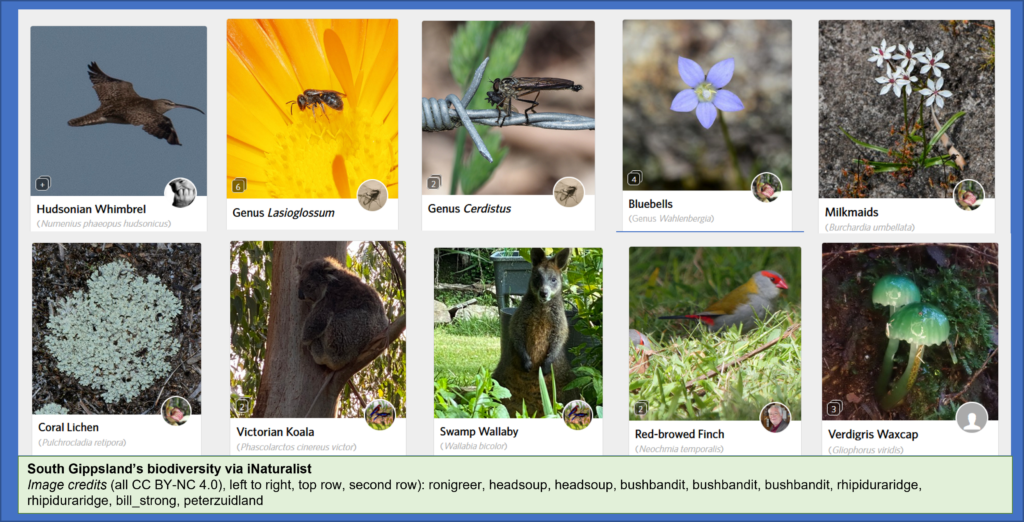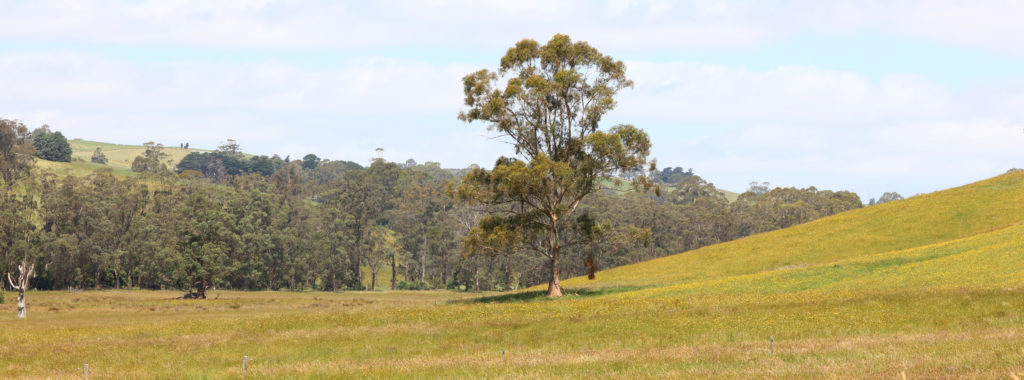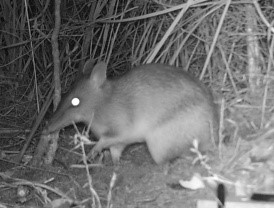The Multispecies Coaching Program is now in its third year. Participants from the 2025 cohort have joined a growing group of local farmers from previous years and are benefiting from the deepening knowledge and experience within the program.
Our Multispecies Coaching Project began in September 2023 and has guided more than 50 South Gippsland farmers interested in growing multispecies pastures.
Through our sustainable agriculture projects, we recognised a growing interest in cultivating multispecies pastures across South Gippsland and identified the need for training and support for site preparation, species selection and more.
‘Multispecies pastures’ refers to the planting of a diverse range of plants, such as brassicas, broadleaves, legumes, cereals, grasses, annuals and perennials, together in one paddock. This diverse plant mix not only offers nutritious feed for livestock but also supports healthier soils. The increased biodiversity helps build soil carbon, enhances soil structure and water absorption, reduces reliance on chemical inputs, and boosts overall farm resilience and productivity.
Resources
Access exclusive Multispecies Pasture resources here, including presentations by Multispecies Pasture Consultant Jade Killoran.
Course Highlights
Year 2 / 2024-2025
We were delighted to receive a second year of funding to continue our Multispecies Coaching program. Most of the year 1 participants continued participating, and we also welcomed a large group of new farmers who were interested in learning to grow multispecies pastures.
A farm walk was held at a private farm in Foster, where interested farmers chatted with existing participants, saw successful crops and heard about the landholders experience growing multispecies for the first time.
The first workshop was held in September, where multispecies expert Jade Killoran took participants through developing a plan for their spring/summer crops. We then visited Heather Matthies’s farm in Mirboo North and learnt from her experiences using a variety of paddock preparation techniques.
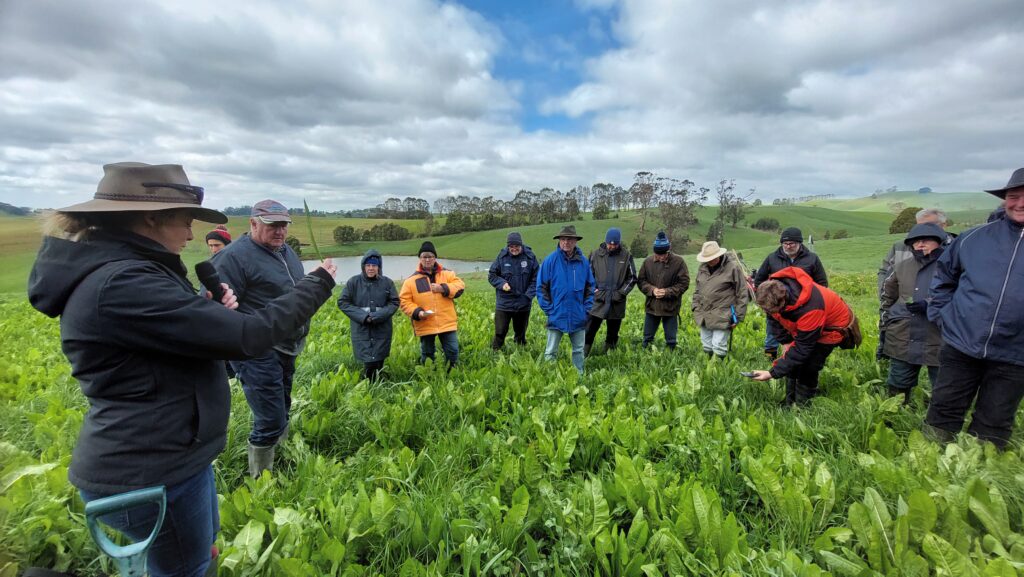
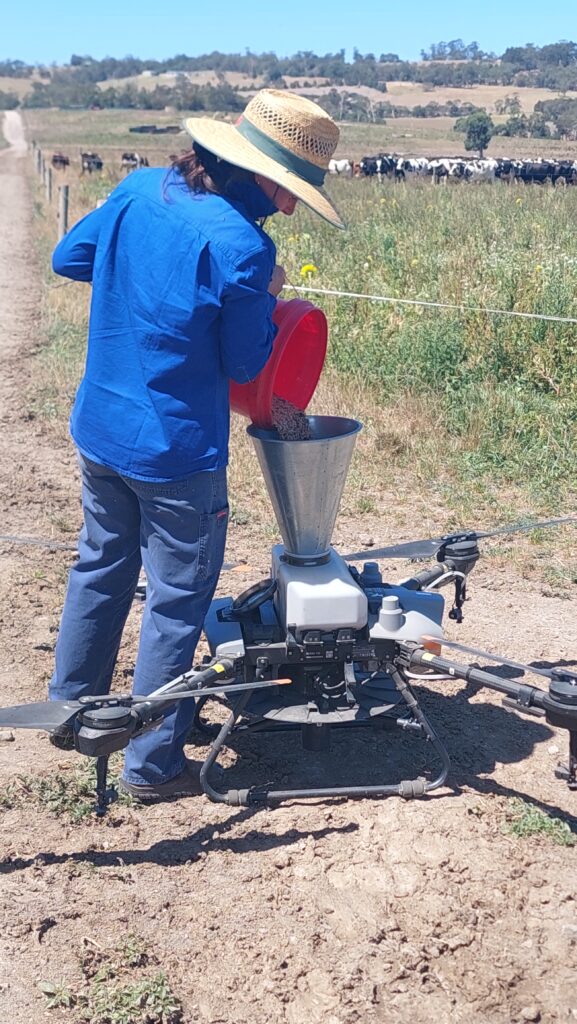
The second workshop was held in February, where participants developed plans for their autumn/winter crops. It was followed by a farm walk at Simon and Lauren Finger’s dairy farm, with a highlight being watching them using a drone to put out seed.
In between the workshops, we held three zoom meetings where the farmers compared notes, learnt from each other’s successes and challenges, and asked questions of Jade. The group online chat via Slack provided another way to share photos and ask questions or support each other along the way.
A case study (below) was also prepared, sharing the detailed stories of three different participating farmers. Two come from conventional farming backgrounds, one has taken a higher intensity approach, and the other is trialling alternative fertilisers. The third example shows how multispecies can be used on smaller properties or for those with limited equipment.
Year 1 / 2023-2024
The Multispecies Coaching Project begun with a training day in September 2023 and brought together 32 farmers from across South Gippsland. We visited a Foster North farm where the landholder shared what he has learnt over several years growing multispecies, and spent the afternoon learning from Jade Killoran, multispecies specialist. Participants developed their own plans for sowing a spring/summer multispecies crop on their farms.
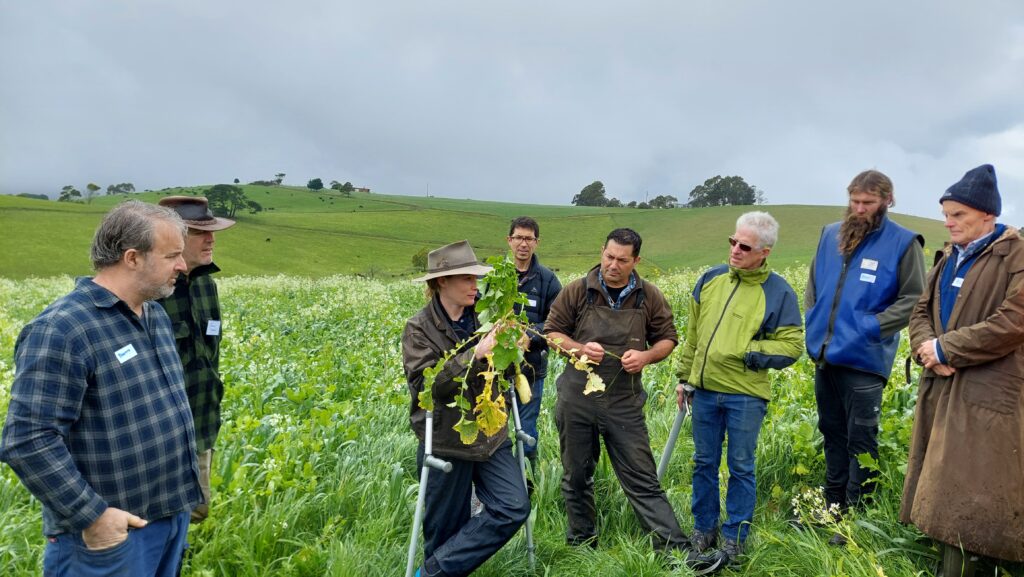
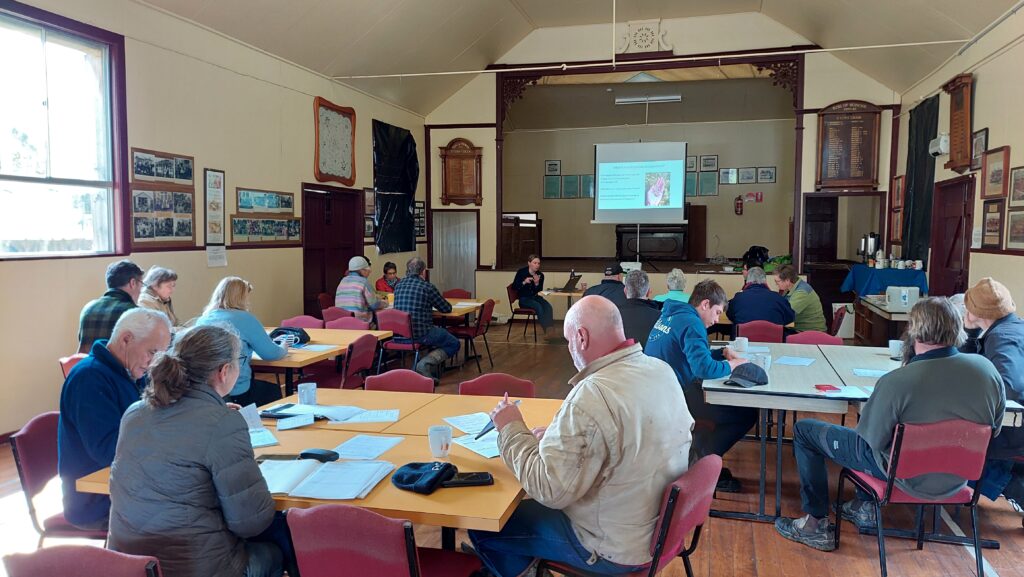
Participants then worked together on a bulk seed purchase, and shared questions, photographs and lessons learned via an online chat group. The group also caught up via online meetings to ask further questions of Jade and compare successes and challenges.
A second training day was held in March 2024. Jade provided further advice, and participants planned their autumn/winter crops, before visiting a local farm for further multispecies inspiration. An online meeting in June continued the learning and sharing amongst the group.
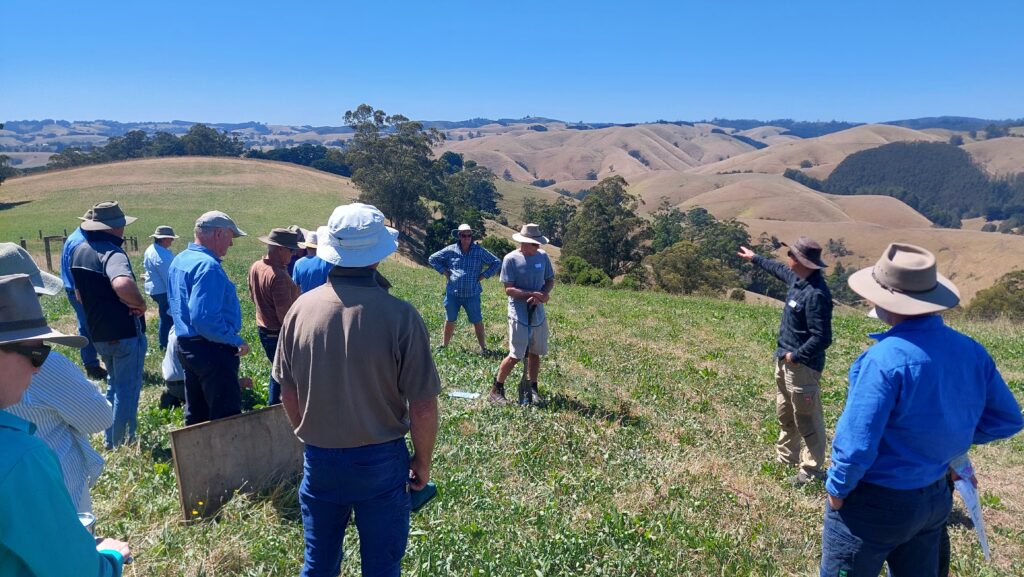
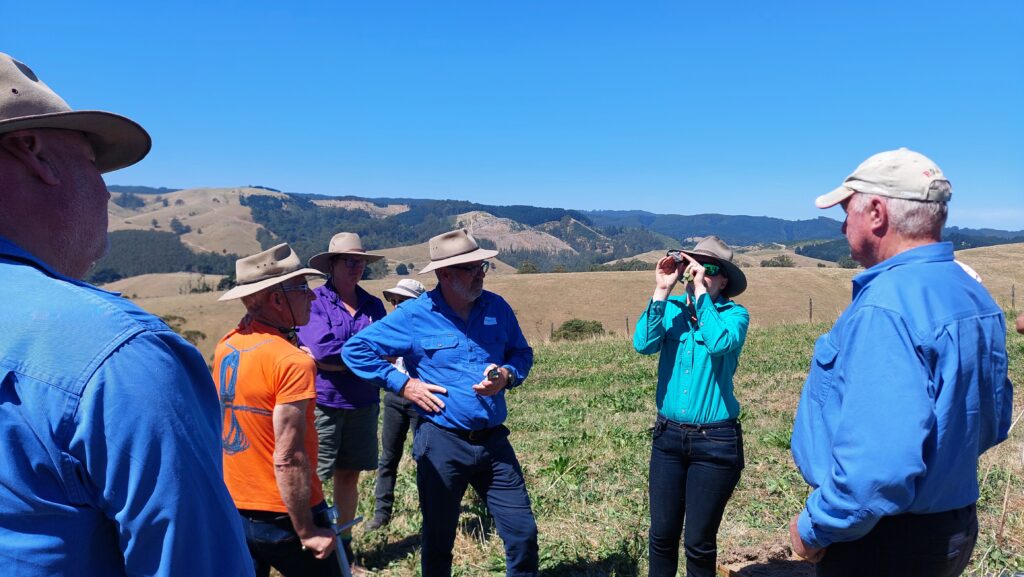
Participants are from a diverse set of farms including beef, sheep and dairy, with a range of soil types. Properties range from small hobby farms with no machinery (who hand broadcast seed) to large farms with big tractors and equipment. It has been fantastic seeing everyone working together (e.g. on bulk seed purchases), supporting each other and learning together. We’ve also identified approaches that work from small up to large scales.
For further information contact cassie@sgln.net.au, 0448 739 559.
Supporting Farmers to Succeed with Planting Multispecies Pastures was supported by the West Gippsland Catchment Management Authority and the Victorian Government through the Victorian Landcare Grants.
